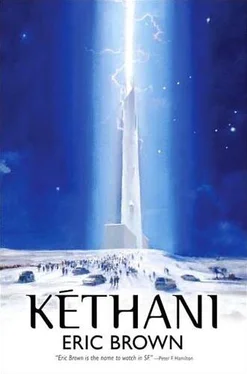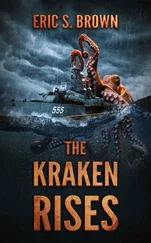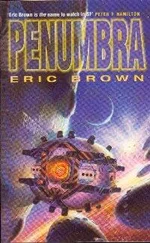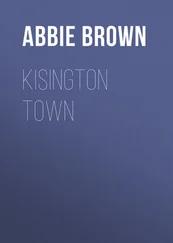Eric Brown - Kéthani
Здесь есть возможность читать онлайн «Eric Brown - Kéthani» весь текст электронной книги совершенно бесплатно (целиком полную версию без сокращений). В некоторых случаях можно слушать аудио, скачать через торрент в формате fb2 и присутствует краткое содержание. Город: Oxford, Год выпуска: 2009, ISBN: 2009, Издательство: Solaris, Жанр: Фантастика и фэнтези, на английском языке. Описание произведения, (предисловие) а так же отзывы посетителей доступны на портале библиотеки ЛибКат.
- Название:Kéthani
- Автор:
- Издательство:Solaris
- Жанр:
- Год:2009
- Город:Oxford
- ISBN:9781844167128
- Рейтинг книги:5 / 5. Голосов: 1
-
Избранное:Добавить в избранное
- Отзывы:
-
Ваша оценка:
- 100
- 1
- 2
- 3
- 4
- 5
Kéthani: краткое содержание, описание и аннотация
Предлагаем к чтению аннотацию, описание, краткое содержание или предисловие (зависит от того, что написал сам автор книги «Kéthani»). Если вы не нашли необходимую информацию о книге — напишите в комментариях, мы постараемся отыскать её.
Kéthani — читать онлайн бесплатно полную книгу (весь текст) целиком
Ниже представлен текст книги, разбитый по страницам. Система сохранения места последней прочитанной страницы, позволяет с удобством читать онлайн бесплатно книгу «Kéthani», без необходимости каждый раз заново искать на чём Вы остановились. Поставьте закладку, и сможете в любой момент перейти на страницу, на которой закончили чтение.
Интервал:
Закладка:
A couple of weeks later the conversation returned to the perennial subject of the Kéthani, and what awaited us when we died.
Richard Lincoln posed the question: would we return to Earth after our resurrections, or would we travel among the stars as the ambassadors of our alien benefactors?
Gregory looked across at me. “You returned to Earth, didn’t you, Khalid? Why, when all the universe awaited you?”
I shrugged, smiled. “I must admit… I was tempted to remain out there. The universe… the lure of new experience… it was almost too much to refuse. But—I don’t know. I was torn. Part of me wanted to travel among the stars, but another, stronger part of me wanted to return.” I looked across at Richard Lincoln; he was the only person I had told about the reasons for my suicide. “Perhaps I feared the new,” I finished. “Perhaps I fled back to what was familiar, safe…” I shrugged again, a little embarrassed at my inarticulacy under the penetrating scrutiny of Gregory Merrall.
He turned to Stuart and Sam. “And you?”
The couple exchanged a glance. Stuart was in his mid-forties, Sam ten years younger, and they were inseparable—as if what they’d experienced, separately, in the resurrection domes on that far-off alien world, had brought them closer together.
Stuart said, “I hadn’t really given much thought to my death, or resurrection, before it happened. I naturally assumed I’d come back to Earth, continue life with Sam—we’d been married just over a year when I had the accident—go back to my lectureship at the university. But while I was in the dome I… I learned that there was far more to life than what I’d experienced, and would experience, back on Earth.”
“And yet you returned,” Gregory said.
Stuart looked across at his wife. “I loved Sam,” he said. “I was tempted… tempted to remain out there. But I reasoned that I could always return to the stars, later.”
Sam said, looking at Gregory almost with defiance, “Two days after Stu died, I killed myself. I wanted to be with him. I couldn’t live without him, not even for six months.” She stopped abruptly and stared down into her drink.
“And?” Gregory prompted gently.
“And when I got up there, when I was resurrected… I mean… I still loved Stu, but something… I don’t know—something was different .” She smiled. “The stars called, and nothing would be the same again. Anyway, I decided to come back, see how it went with Stu, and take it from there.”
I said, “And look what happened. ‘Happily ever after’, or what?”
“We both felt the same,” Stuart said. “It was as if our love had been tested by what we learnt out there. We considered going back, but… well, we fell into the old routine, work and the pub…” He laughed and raised his pint in ironic salutation.
“That’s very interesting,” Gregory said. “I’ve done some research. In the early days, only two in ten who died and were resurrected chose to remain out there. The majority opted for what they knew. Now, out of every ten, seven remain. And the average is rising.”
“Why do you think that is?” Ben asked.
Gregory pursed his lips, as if by a drawstring, and contemplated the question. “Perhaps we’ve come to trust the Kéthani. We’ve heard the stories of those who’ve been to the stars and returned, and we know there’s nothing to fear.”
“But,” Elisabeth said, with a down-to-earth practicality, “surely the draw of the familiar should be too much for most of us, those of us who want to return and do all the things on Earth that we never got round to doing.”
But Gregory was shaking his head. “You’d think so, but once you’ve experienced resurrectionand instruction by the Kéthani, and gone among the stars—”
Stuart interrupted, “You sound as if you’ve experienced it first-hand?”
Gregory smiled. “I haven’t. But I have interviewed hundreds, maybe even thousands, of returnees from life among the stars, for a series of novels I wrote about the Kéthani.”
“And?” I said.
“And I found that the idea of a renewed life on Earth, for many, palls alongside the promise of the stars. And when these people experience life out there, they find life on Earth well-nigh impossible.” He smiled. “‘Provincial’ was the word that cropped up again and again.”
We contemplated our beers in silence.
At last I said, “And you, Gregory. What would you do?”
He stared at us, one by one. “When I die, which I think won’t be long in happening, then I’ll remain out there among the stars, doing whatever the Kéthani want me to do.”
A few days later I received a package of books through the post. They were the Returnee trilogy, by Gregory Merrall, sent courtesy of his publisher in London.
That week at the pub I found that every one of us in the group had received the trilogy.
“I don’t know what I was expecting,” Stuart said, “but they’re good.”
“More than good,” said Elisabeth, who was the literary pundit amongst us. “I’d say they were excellent, profoundly moving.”
Dan nodded. “I’d second that. I’m more of a non-fiction man myself, but I found Gregory’s books compelling stuff.”
Gregory was away that Tuesday—visiting his publisher—so we didn’t have the opportunity to thank him. That week I devoured the books, and like Stuart and Elisabeth and Dan found them a heady experience.
He had the ability to write about ideas and the human experience in such a way that the one complemented the other. His characters were real, fully fleshed human beings, about whom the reader cared with a passion. At the same time, he wrote about their experiences in a series of philosophical debates that were at once—for a literary dunce like myself—understandable and page turning.
I canvassed Stuart’s opinion on the following Tuesday. I wondered if he, as an intellectual, had been as impressed by Gregory’s books as I had. He had, and for an hour that evening before the man himself turned up, all of us discussed the Returnee trilogy with passion and something like awe that we knew its author.
At one point Stuart said, “But what did you all think about the finale, and what did it mean? Gregory seemed to be saying that life on Earth was over, that only humankind’s journey among the stars was what mattered.”
Ben nodded. “As if Earth were a rock pool, which we had to leave in order to evolve.”
At that point Gregory came in with a fanfare of wind and a swirl of snowflakes. We fought to buy him a drink and heaped praise on his novels.
I think he found all the fuss embarrassing. “I hope you didn’t think it a tad arrogant, my having the books sent.”
We assured him otherwise.
“It was just,” he said, “that I wanted you to know my position.” He smiled. “And it saved me giving a lecture.”
Elisabeth asked, “What are you working on now, Gregory?”
He hesitated, pint in hand. “Ah… Well, I make it a rule never to talk about work in progress. Superstition. Perhaps I fear that gabbing about the book will expend the energy I’d use writing it.”
She gave a winning smile. “But on this occasion…”
Gregory laughed. “On this occasion, seeing as I’m among friends, and I’ve almost finished the book anyway…”
And he proceeded to tell us about his next novel, entitled The Suicide Club.
It was about a group of friends who, dissatisfied with their routine existence on Earth, stage a farewell party at which they take their own lives, are resurrected, and then go among the stars as ambassadors of the Kéthani.
Over the course of the next few weeks we became a reading group devoted to the works of Gregory Merrall.
Читать дальшеИнтервал:
Закладка:
Похожие книги на «Kéthani»
Представляем Вашему вниманию похожие книги на «Kéthani» списком для выбора. Мы отобрали схожую по названию и смыслу литературу в надежде предоставить читателям больше вариантов отыскать новые, интересные, ещё непрочитанные произведения.
Обсуждение, отзывы о книге «Kéthani» и просто собственные мнения читателей. Оставьте ваши комментарии, напишите, что Вы думаете о произведении, его смысле или главных героях. Укажите что конкретно понравилось, а что нет, и почему Вы так считаете.












